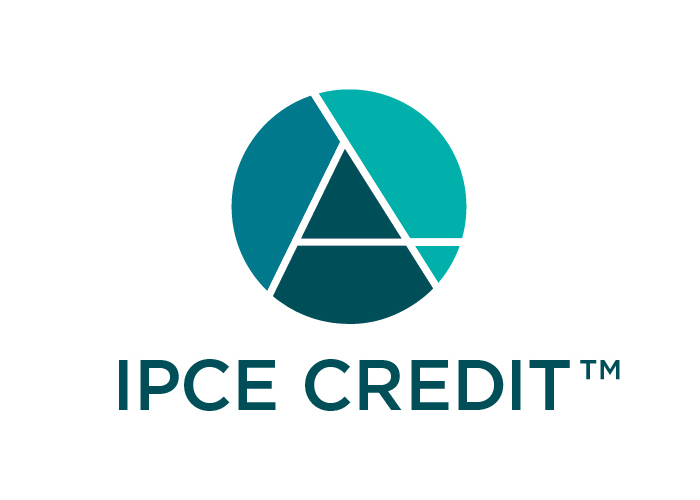Announcer:
Welcome to CME on ReachMD. This episode is part of our MinuteCE curriculum.
Prior to beginning the activity, please be sure to review the faculty and commercial support disclosure statements as well as the learning objectives.
Dr. Hurvitz:
Hi, I'm Dr. Sara Hurvitz from the University of California, Los Angeles. I'm here today with Sara Tolaney from Dana Farber Cancer Institute. Sara, I'm so glad you're here with me today.
Dr. Tolaney:
Oh, thank you so much.
Dr. Hurvitz:
We're going to talk today about the future of antibody drug conjugates in metastatic triple-negative breast cancer. And Sara, this is a really exciting time. We right now have available to us sacituzumab govitecan, which was studied in the ASCENT study. We also have trastuzumab deruxtecan for HER2-low triple-negative breast cancer. But there's other agents being looked at as well, including combination therapies, for example, with sacituzumab govitecan or with trastuzumab deruxtecan or with the newer agent, datopotamab deruxtecan. Can you take us through some of the studies that you're most excited to see the results from?
Dr. Tolaney:
Yeah, you know, as you pointed out, we have sacituzumab approved from ASCENT really in the second line and beyond in metastatic triple-negative disease, and based on DESTINY-Breast04, also have T-DXd approved really in the second line and beyond, or for very early relapse. But I think the question is, is how can we move those agents earlier? So with sacituzumab, there are two first-line trials that are currently enrolling, there's ASCENT-04, which is looking at sacituzumab in combination with pembrolizumab and, in essence, comparing it to the KEYNOTE-355 regimen, so chemotherapy with paclitaxel, nabpaclitaxel, or carboplatin/gemcitabine with pembo. So that will address the PD-L1-positive
Population, trying to see if ADC checkpoint combination will be superior to chemo checkpoint.
For the PD-L1-negative population, there's ASCENT-03, in essence, comparing sacituzumab to standard chemotherapy, which again will hopefully allow us to see if an ADC can outperform chemo in that PD-L1-negative population.
There's also the TROPION-Breast02 to study, which is looking at datopotamab deruxtecan and comparing it to chemo of choice, really, for the PD-L1-negative or IO ineligible population. So focusing on that population that's not getting checkpoint. So again, all these studies are really trying to place the ADC into the first line, metastatic triple-negative setting.
Dr. Hurvitz:
Yeah, it's going to be very interesting as these data emerge, because it could be that in the frontline setting, we have available an ADC. And I think then the question is going to become, how well does single-agent chemotherapy work after an ADC? And we really don't have much data regarding that whatsoever. As well, as you know, should we be sequencing these ADCs? So what are your thoughts about the later-line setting if we do see an ADC make an approval in the frontline setting?
Dr. Tolaney:
I mean, I think it very much brings up this question about sequencing because what if we have approvals for datopotamab deruxtecan, sacituzumab govitecan, and trastuzumab deruxtecan? You know, if those TROP2-directed ADCs are frontline, then it begs the question, can you use another TROP2 ADC subsequently? Or can you use T-DXd subsequently? And actually, one of my colleagues, Ana Garrido-Castro, is going to be running this study called Trade-DXd, I think clever title because just trading out your ADCs. And so it'll give a T-DXd followed by Dato-DXd, or vice versa. And I think that will be really interesting to understand how those ADCs can work subsequently. And so I think again, we'll have to learn more as these studies come out.
Dr. Hurvitz:
We're going to rely on smaller sort of IIT-type studies like this to address these very critical questions clinically. And I think they're going to also be important because it may be that we have some of these agents available in the curative setting in the not so far future. So then knowing what to do in the frontline setting after somebody has had an ADC is going to be critical.
Thank you so much for your comments today. It was great talking to you.
Dr. Tolaney:
Oh, thanks so much for having me.
Announcer:
You have been listening to CME on ReachMD. This activity is jointly provided by Global Learning Collaborative (GLC) and TotalCME, LLC. and is part of our MinuteCE curriculum.
To receive your free CME credit, or to download this activity, go to ReachMD.com/CME. Thank you for listening.


 In support of improving patient care, this activity has been planned and implemented by Global Learning Collaborative (GLC) and Total CME, LLC. GLC is jointly accredited by the American Council for Continuing Medical Education (ACCME), the Accreditation Council for Pharmacy Education (ACPE), and the American Nurses Credentialing Center (ANCC) to provide continuing education for the healthcare team.
In support of improving patient care, this activity has been planned and implemented by Global Learning Collaborative (GLC) and Total CME, LLC. GLC is jointly accredited by the American Council for Continuing Medical Education (ACCME), the Accreditation Council for Pharmacy Education (ACPE), and the American Nurses Credentialing Center (ANCC) to provide continuing education for the healthcare team.

Facebook Comments